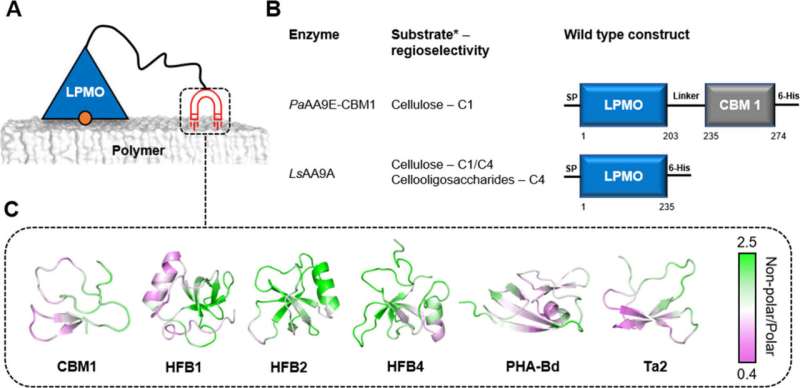Plastic pollution is a global crisis, but a team of researchers has discovered a novel solution – reprogramming wood-degrading mushroom enzymes to break down plastic. This innovative approach taps into the natural abilities of fungi, harnessing their potent enzymes to tackle the challenge of plastic waste. Learn how scientists are engineering these enzymes to recognize and degrade different types of plastics, paving the way for a more sustainable future. Plastic Pollution | Bioremediation

Harnessing Fungal Superpowers for Plastic Recycling
Plastic pollution is a ubiquitous problem that poses a significant threat to our environment. While efforts to reduce plastic consumption and improve production methods are crucial, the sheer scale of the issue demands innovative solutions. Enter the world of wood-degrading mushroom enzymes – a promising avenue for tackling the plastic waste crisis.
These filamentous fungi possess a remarkable ability to break down cellulose, a natural polymer found in wood. They achieve this feat by secreting a specialized class of enzymes known as “lytic polysaccharide monooxygenases” (LPMOs). LPMOs have the unique capacity to attack the surface of cellulose, weakening the structure and facilitating further degradation. Interestingly, plastics share similar properties with cellulose, making these fungal enzymes potential game-changers in the quest for plastic biorecycling.
Reprogramming Enzymes: A Transformative Approach
Recognizing the potential of LPMOs, scientists have embarked on a mission to reprogram these enzymes, equipping them with the ability to bind to and degrade various types of plastics. Through a process known as modular engineering, researchers have been able to replace the natural cellulose-binding module of the LPMO enzymes with modules that can recognize and attach to different plastic polymers.
This innovative approach has yielded impressive results. The researchers have successfully created chimera LPMOs that can bind to and even create holes in the surface of polyhydroxyalkanoate (PHA), a biosourced plastic. By further optimizing and combining these engineered enzymes into “cocktails,” the scientists aim to develop a comprehensive enzymatic toolkit for the biorecycling of a wide range of plastic materials.
Towards a Sustainable Future: Enzymatic Plastic Recycling
The implications of this research are far-reaching. By harnessing the natural abilities of wood-degrading fungi and reprogramming their enzymes, scientists have opened up a new frontier in plastic waste management. This biotechnological approach holds the promise of a more sustainable and environmentally friendly solution to the plastic pollution crisis.
As the research progresses, the team will continue to evaluate the effectiveness of these chimera enzymes in breaking down different types of plastics. The ultimate goal is to create a comprehensive enzymatic toolkit that can be deployed to efficiently recycle a wide variety of plastic materials, reducing the burden on landfills and oceans. This innovative solution not only addresses the immediate problem of plastic waste but also paves the way for a future where plastic can be repurposed and reused in a circular economy.
